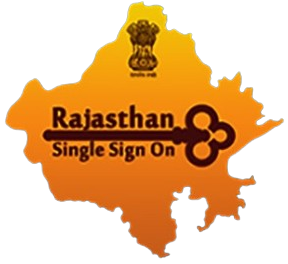In the digital age, SSO ID Rajasthan for E-Procurement has become a cornerstone of the state’s efforts to enhance transparency, efficiency, and accessibility. The Government of Rajasthan has leveraged this Single Sign-On Identification system to simplify the procurement process, allowing businesses, government agencies, and individuals to participate seamlessly in e-procurement and tendering activities. This article explores the vital role of SSO ID Rajasthan in e-procurement, examining the key factors that influence its effectiveness, the challenges it faces, and the tradeoffs necessary to achieve the best possible outcomes.

Key Factors Impacting SSO ID Rajasthan for E-Procurement and Tendering
Several key factors influence the effectiveness and efficiency of SSO ID Rajasthan in the context of e-procurement and tendering:
User Accessibility and Adoption:
- Importance: The success of SSO ID hinges on its widespread adoption by users, including vendors, government officials, and other stakeholders involved in procurement. Ease of access and a user-friendly interface are critical to ensuring high adoption rates.
- Tradeoffs: While focusing on accessibility, there may be tradeoffs related to security measures. Enhancing user convenience might require simplifying login processes, which could expose the system to vulnerabilities. Striking the right balance between ease of use and security is a significant challenge.
- Challenges: Encouraging smaller vendors, especially those with limited technological capabilities, to adopt SSO ID remains a challenge. Efforts to provide training and support can help bridge this gap.
Security and Data Privacy:
- Importance: The e-procurement and tendering process involves sensitive information, including financial data, bid details, and contractual agreements. Ensuring the security and privacy of this data is paramount.
- Tradeoffs: Implementing stringent security protocols may impact the speed and efficiency of the system. For instance, multi-factor authentication adds a layer of security but can also complicate the user experience.
- Challenges: Keeping the system secure from cyber threats while maintaining user convenience requires continuous updates and monitoring. Additionally, data privacy regulations must be strictly adhered to, necessitating robust encryption and data protection measures.
Interoperability with Other Government Systems:
- Importance: For SSO ID to be truly effective, it must seamlessly integrate with other government systems, such as financial management systems, tax portals, and regulatory compliance platforms.
- Tradeoffs: While integration enhances the overall efficiency of government operations, it can also introduce complexities in system management and data synchronization.
- Challenges: Achieving interoperability requires consistent coordination between different departments and agencies, which can be difficult due to varying technical standards and legacy systems. Ensuring smooth data flow while maintaining system integrity is a key challenge.
Regulatory Compliance and Legal Framework:
- Importance: E-procurement and tendering are subject to various legal and regulatory frameworks designed to ensure fairness, transparency, and accountability. SSO ID must be compliant with these regulations.
- Tradeoffs: Compliance often necessitates additional layers of documentation and validation, which can slow down the procurement process. However, bypassing these requirements to expedite processes can result in legal repercussions and undermine the integrity of the system.
- Challenges: Keeping up with evolving regulations and ensuring that the SSO ID system is always in compliance is an ongoing challenge. This requires regular audits, updates to the system, and continuous legal oversight.
Scalability and System Performance:
- Importance: As the number of users and the volume of transactions grow, the SSO ID system must be scalable to handle increased demand without compromising performance.
- Tradeoffs: Enhancing scalability often requires significant investment in infrastructure and technology, which can be costly. Balancing the need for performance with budgetary constraints is a critical consideration.
- Challenges: Ensuring that the system remains responsive under heavy load conditions, particularly during peak times like tender submission deadlines, is essential. This requires robust infrastructure, regular performance testing, and timely upgrades.
User Support and Training:
- Importance: Effective user support and training are crucial to maximizing the benefits of SSO ID for e-procurement and tendering. Users need to be well-informed about how to use the system and troubleshoot common issues.
- Tradeoffs: While extensive training programs can improve user proficiency, they require time and resources to develop and implement. Providing ongoing support can also strain resources, particularly if the user base is large.
- Challenges: Developing training materials that are accessible to all users, including those with varying levels of technical expertise, is a significant challenge. Additionally, maintaining an efficient support system to address user queries and issues in a timely manner is essential.
Challenges in Balancing Different Factors
Balancing the various factors that impact the effectiveness of SSO ID Rajasthan in e-procurement and tendering is a complex task. Each factor is interdependent, meaning that changes in one area can have ripple effects across the entire system. For example, enhancing security might reduce accessibility, while increasing scalability could strain financial resources. Decision-makers must carefully weigh these tradeoffs to achieve a system that is secure, efficient, and user-friendly.
Moreover, the dynamic nature of technology and regulations means that the SSO ID system must be adaptable. Continuous monitoring, feedback from users, and regular updates are essential to maintaining the system’s effectiveness over time.
The Importance of SSO ID Rajasthan in E-Procurement and Tendering
The importance of SSO ID Rajasthan in e-procurement and tendering cannot be overstated. It plays a pivotal role in streamlining the procurement process, reducing administrative overhead, and enhancing transparency. By providing a single access point for all procurement-related activities, SSO ID simplifies the process for vendors and government officials alike, making it easier to participate in tenders and monitor their progress.
Additionally, the system contributes to the broader goals of digital governance by promoting accountability and reducing the potential for corruption. With all procurement activities logged and tracked digitally, there is a clear audit trail that can be reviewed to ensure compliance with regulations and best practices.
Conclusion
SSO ID Rajasthan is a powerful tool that has the potential to revolutionize e-procurement and tendering processes in the state. However, realizing its full potential requires careful consideration of the various factors that impact its effectiveness. By balancing accessibility, security, interoperability, regulatory compliance, scalability, and user support, the government can create a system that is not only efficient but also equitable and secure.
As the SSO ID system continues to evolve, it is crucial for stakeholders to remain engaged and provide feedback that can help shape future developments. By doing so, SSO ID Rajasthan can continue to serve as a model for digital governance and set new standards for e-procurement and tendering in India.
What is SSO ID Rajasthan, and how does it relate to e-procurement and tendering?
SSO ID Rajasthan is a unified digital identity system that allows users to access multiple government services through a single login. In the context of e-procurement and tendering, it serves as a central access point for businesses, government agencies, and individuals to participate in the state’s procurement processes, including bidding for tenders and submitting necessary documentation online.
How can I register for an SSO ID to participate in e-procurement and tendering in Rajasthan?
To register for an SSO ID, visit the official SSO Rajasthan portal (https://sso.rajasthan.gov.in). You will need to provide details such as your Aadhaar number, Bhamashah ID, or Facebook/Google credentials to create your account. Once registered, you can log in and access e-procurement and tendering services under the “E-Mitra” or relevant sections.
What are the benefits of using SSO ID Rajasthan for e-procurement?
Using SSO ID for e-procurement offers several benefits, including a streamlined process for accessing tender information, submitting bids, and tracking procurement activities. It reduces administrative overhead, enhances transparency, and provides a secure, centralized platform for all procurement-related tasks.
Is it mandatory to have an SSO ID to participate in tenders in Rajasthan?
Yes, it is mandatory to have an SSO ID to participate in e-procurement and tendering activities in Rajasthan. The SSO ID system ensures that all participants are verified and that the process remains secure and transparent.
How does SSO ID Rajasthan ensure the security of my data during e-procurement and tendering?
SSO ID Rajasthan employs multiple security measures, including encryption, multi-factor authentication, and regular system audits to protect user data. These measures ensure that sensitive information related to e-procurement and tendering is kept secure from unauthorized access.
What should I do if I encounter issues while using my SSO ID for e-procurement?
If you experience issues while using your SSO ID for e-procurement, you can contact the SSO Rajasthan helpdesk or access support through the official portal. Detailed guides, FAQs, and customer support services are available to assist users in troubleshooting common problems.
Can multiple users access the same SSO ID account for e-procurement purposes?
No, each SSO ID is meant to be unique to the individual or organization that registers it. For security reasons, it is recommended that each user or entity involved in e-procurement and tendering activities has their own SSO ID.
How does SSO ID Rajasthan integrate with other government systems for e-procurement?
SSO ID Rajasthan is designed to integrate seamlessly with other government systems, such as financial management and tax portals. This interoperability allows for efficient data sharing and streamlined processes across different government departments involved in procurement.
What challenges are associated with using SSO ID Rajasthan for e-procurement and tendering?
Challenges include ensuring widespread adoption among all stakeholders, maintaining a balance between user accessibility and security, achieving interoperability with other government systems, and keeping the system updated to comply with evolving regulations and technological standards.
How can I stay informed about updates or changes to the SSO ID Rajasthan system related to e-procurement?
To stay informed about updates, regularly visit the official SSO Rajasthan portal, subscribe to government notifications, or follow relevant government departments on social media. These channels will provide timely updates on any changes or improvements to the system.
